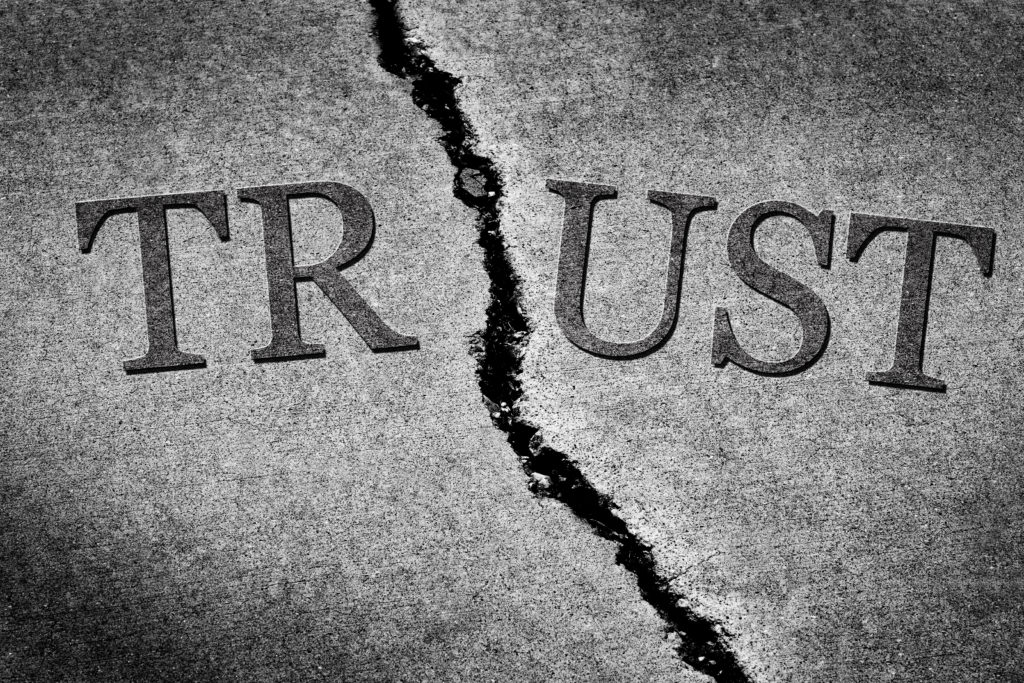Trust in communication refers to the generalized expectancy that a message received is true and reliable and that the communicator demonstrates competence and honesty by conveying accurate, objective, and complete information.
Ortwin Renn and Debra Levine1Renn, O., & Levine, D. (1991). Credibility and trust in risk communication. In Communicating risks to the public (pp. 175-217). Springer, Dordrecht.

Trust is paramount to maintaining healthy relationships and engaging in effective communication, and trust comes through a mutual perception of honesty and openness. Trust between parties is most damaged by lies. You may be thinking of a blatant falsehood, but the lies that break trust between parties are not always outright fabrications. In fact, the most common type of lie is a lie of omission. Leaving out a pertinent detail, no matter how big or small, is a lie of omission. Regardless of the content or severity, lies place a barrier between the parties involved. They undermine the trust that is the basis for future conversations. Once trust is lost, it can take a long time to rebuild, and the long journey to reestablishing trust between individuals takes its toll on relationships. For this reason, effective leaders and effective communicators focus on the truth.
In reality, not everything can be shared. Certain government agencies retain information to protect national security. Some companies protect trade secrets and other intellectual property. Likewise, regulatory personnel may retain their judgement or opinions until they know all sides of a situation or until a study is completed. Because they are obligated to withhold certain information, these entities can easily be charged with committing lies of omission. One effective way to avoid this is to be truthful and open about what cannot be shared. This honesty facilitates trust in future conversations by establishing boundaries and expectations for authenticity and respect between all parties.
If you believe others are lying to you, return to the established strategy for difficult communications: questions. Ask questions to gain clarity on key points. If they seem uncertain in their arguments or change their message, they may not be engaging in honest communication. If you do uncover lies, ask questions to better understand the motivations and intentions of the other party rather than casting accusations.
Images: “Dakota Access Oil Pipeline (DAPL)” by Tony Webster licensed under CC BY NC SA 2.0
